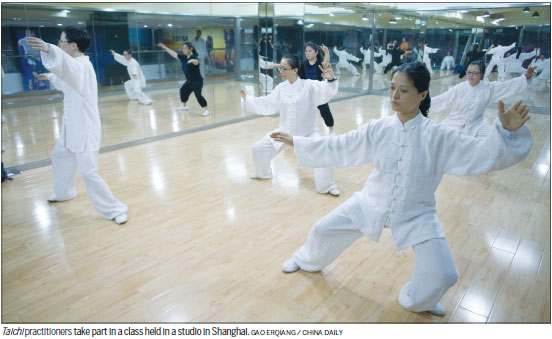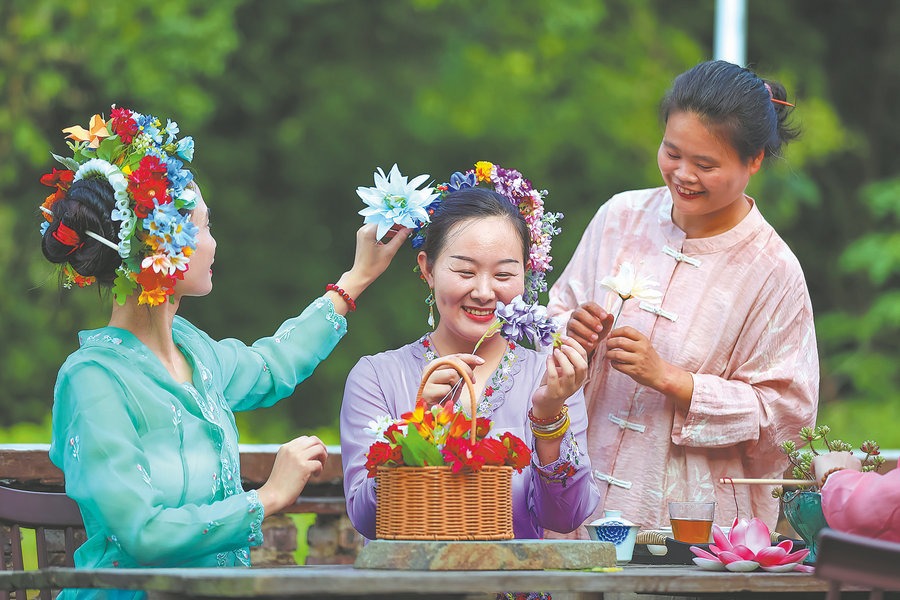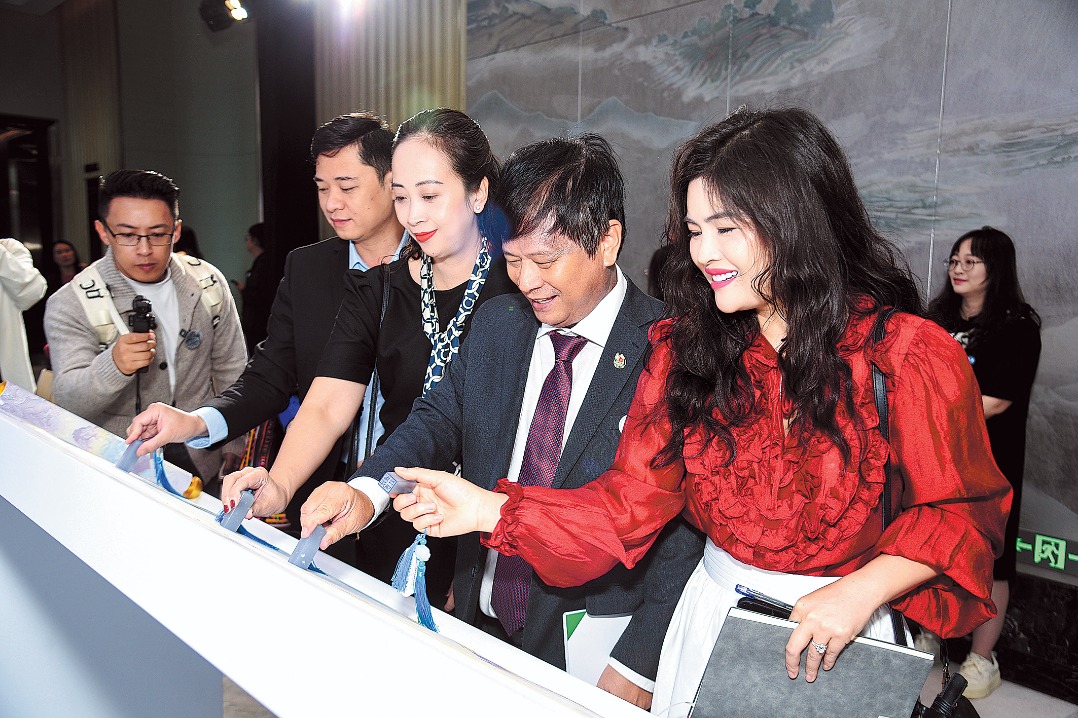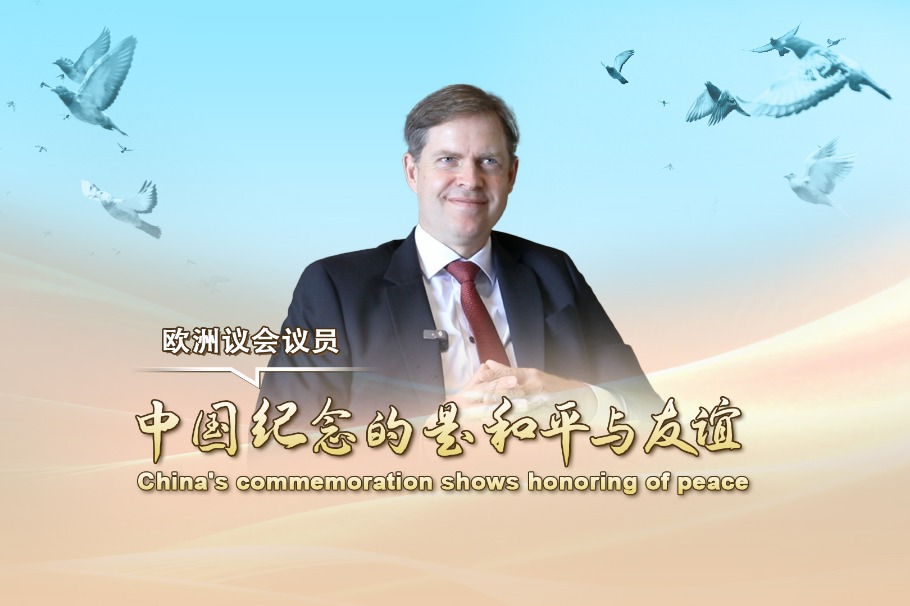Tapping the strength from within

While most people would grab a bite and relax during the lunch break every day, Zhang Jian and a few colleagues choose to practice taijiquan instead.
For nearly eight years, these office workers have been congregating at a small outdoor area near the building to do taijiquan, an activity which they say makes them feel "relaxed, refreshed and recharged".
The ancient martial art, which is also known as taichi, is widely practised across China in parks and community squares. Though there are no formal statistics regarding the number of taichi practitioners in the country, the martial art can be said to have enjoyed an enduring popularity through time.
Taichi has since the 1960s been a part of China's National Games, which like the Olympics only takes place every four years. The martial art is also widely recognized as one of the country's most iconic activities.
According to popular fiction and movies, the martial art was created by a Taoist monk named Zhang Sanfeng in the 12th century. However, many people don't know that this monk was only responsible for creating the guiding principle of taichi - the channeling of one's internal power - and not the various movements often associated with the martial art.
Based on Tao Te Ching, the classic Chinese text written by Lao Tze in the late 4th century BC, the essence of taichi lies in the conditioning of spiritual and mental aspects. The book also says that taichi is best illustrated by the symbolic Taoist pattern: a half black-half white circle that represents yin and yang respectively.
The message within this symbol is that what seems opposite may be interchangeable, that good may become bad, and that the powerful may lose to the weak.
Experienced taichi practitioners, such as Cheng Wei, the mentor of Zhang and his colleagues, can easily take down bigger and heavier adversaries. However, the goal of practicing taichi is not to solve conflicts, said Cheng. Instead, taichi is all about staying healthy and happy.
Cheng, 55, was once a taichi national champion who had represented Shanghai in competitions across the country. He has been accepting students in Shanghai for the past eight years and will by the end of this year launch a new club house in the Xujiahui area that teaches the martial arts, traditional Chinese medicine and how to live a wholesome lifestyle.
Cheng was only 10 when he began to learn martial arts. He would join dozens of other children in the Confucius Temple in downtown Shanghai before and after school to practice kungfu. He later joined a martial arts school and became a member of the Shanghai Martial Arts Team.
In 1983, when China's martial arts scene underwent a major reform, taichi was recognized as an important discipline. The Shanghai Martial Arts Team then invited the famous Fu Zhongwen (1903-1994) to teach the martial art to students.
Fu was the nephew-in-law of Yang Chengfu (1883-1936), also a taichi master. The grandson of Yang Luchan (1799-1872), the founding father of Yang-style taichi, Yang simplified the traditional movements and successfully taught them to royalty and aristocrats in Beijing. Yang later regulated and systemized the movements to establish a routine known as Yang-style taijiquan.
Yang-style taichi consists of 85 movements. According to Cheng, it is important to learn the use of strength and understand the flow of energy in one's body after mastering the postures and movements. He added that though the movements seem slow and relaxed, performing one complete set is as arduous as going through a gymnastics routine.
Cheng said that with the correct use of strength, one can ignite the engine within the body and "draw strength from the ground". This, he said, is the gist of internal training, the main focus of taichi.
Since the early 1980s, each province in China has been training its own martial arts exponents for the prestigious national games.
"Almost all of the martial arts exponents who acted in kungfu films in the 1980s came from China," Cheng recalled. He too had his fair share of appearances on the silver screen, with one of the movies being Shao Lin Temple, which started a national craze for kungfu in the Chinese mainland.
The leading actor in that show was the 19-year-old Jet Li, a national-champion who later rose to fame in Hong Kong and Hollywood.
With the change in audience expectations and the evolution of fight choreography, the martial arts that people see in today's films are unrealistic, almost surrealistic, and are often beyond the limits of human capabilities, said Cheng.
"I am from the bridging generation. We were personally trained by the masters. We know it is hard enough to pass on what we learned from them, let alone come up with such innovations," said Cheng.
Back in the 1980s, the Shanghai Martial Arts Team consisted of no more than a dozen members, and four of them studied taichi, recalled Cheng. Training every day spanned six hours and the students often had to adopt a horse stance for an hour. Even on cold winter mornings, they would be covered in perspiration because of the gruelling training routine.
Cheng lived in the same dormitory room as Fu, assisting the then 84-year-old teacher with his daily chores.
"He was like a father to me. I learned a lot not from the classes we had, but from living together with shifu (mentor)," Cheng recalled.
The two men often chatted for hours over cups of tea in the summer evenings. They would talk about everything under the sun, from life to whatever ideas they had.
Decades have since passed and Cheng still finds his teacher's ideas inspiring. In the living room of his home in the southwestern suburb of Shanghai, a photo of himself and Fu hangs on the wall as a reminder of the good times.
Under Fu's guidance, Cheng won several national competitions in taijiquan as well as sword fighting. In 1991, Cheng bid farewell to his mentor and left the team for Tunisia. He said that he was exhausted and simply needed a break from the decades of training and competition.
For five years, Cheng worked in Tunisia as a Chinese kungfu coach. He recalled how there was great interest in Chinese martial arts in there thanks to movies starring people like Bruce Lee and Jackie Chan.
Cheng initially only made his students repeat martial arts movements. When he later became proficient in French, he started to explain to them the theories behind these movements.
About eight years ago, Cheng started to conduct taichi classes for corporate leaders in Shanghai. Some of these individuals have become advanced practitioners.
"One day they will be teaching others. My job is to pass on to them everything I know to be right, as I've learned from my mentor," said Cheng.

(China Daily USA 09/16/2016 page9)
Today's Top News
- Peace or war: that is the question
- Japan-Australia security partnership not as well-intentioned as claimed
- Xi to attend BRICS leaders virtual meeting
- China initiates emergency response to flooding, typhoon in 2 provinces
- PLA condemns Canadian, Australian warships' Taiwan Strait transit
- Xi extends congratulations to plenary session of China-Russia friendship committee































